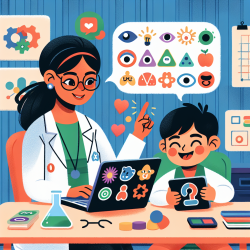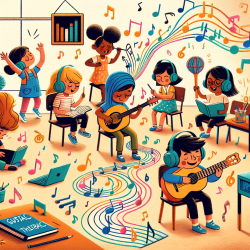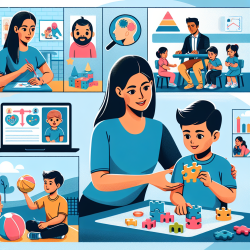As practitioners, we are always on the lookout for effective tools that can make a significant impact on our clients. One such promising tool is nonword repetition, a task that involves the immediate recall of novel phonological forms. Despite its simplicity, nonword repetition mimics one of the most basic and important language-learning mechanisms: the immediate repetition of unfamiliar words.
According to Lisa M.D. Archibald's research article, "The Promise of Nonword Repetition as a Clinical Tool," this task can be incredibly effective in distinguishing children with Specific Language Impairment (SLI) from their typically developing peers. This article highlights several key findings and practical applications that can enhance your clinical practice.
Key Findings
- Children with SLI show marked deficits in nonword repetition tasks, which are highly heritable and linked to chromosome 16.
- Nonword repetition effectively discriminates children with SLI from typically developing monolingual groups and children learning a second language.
- The task is simple, practical, and can be scored online, making it easily adaptable to the clinic environment.
Clinical Applications
Nonword repetition can serve as a valuable diagnostic tool. Here are some ways you can implement it in your practice:
- Screening: Use nonword repetition tasks to identify young children at risk for SLI.
- Assessment: Employ this task to gather additional information on older children referred for language difficulties.
- Intervention: Incorporate repetition tasks that encourage children to notice sound patterns, increasing their phonological awareness and short-term memory for phonological material.
Encouraging Further Research
While nonword repetition shows great promise, it's important to remember that the underlying causes of deficits in this task are still not fully understood. Continued research is essential to refine our understanding and improve our intervention strategies. As practitioners, staying informed about the latest research and incorporating evidence-based practices into our work can make a significant difference in the lives of our clients.
To read the original research paper, please follow this link: The Promise of Nonword Repetition as a Clinical Tool.










